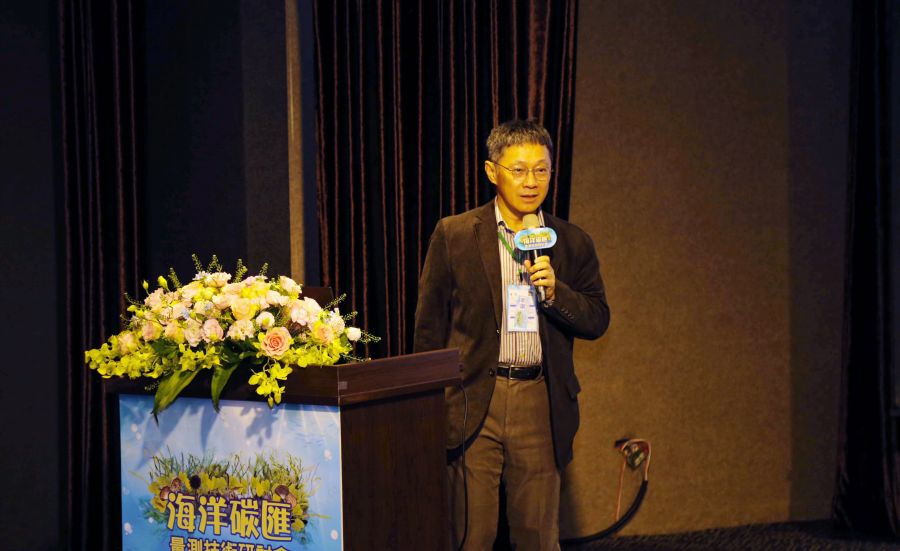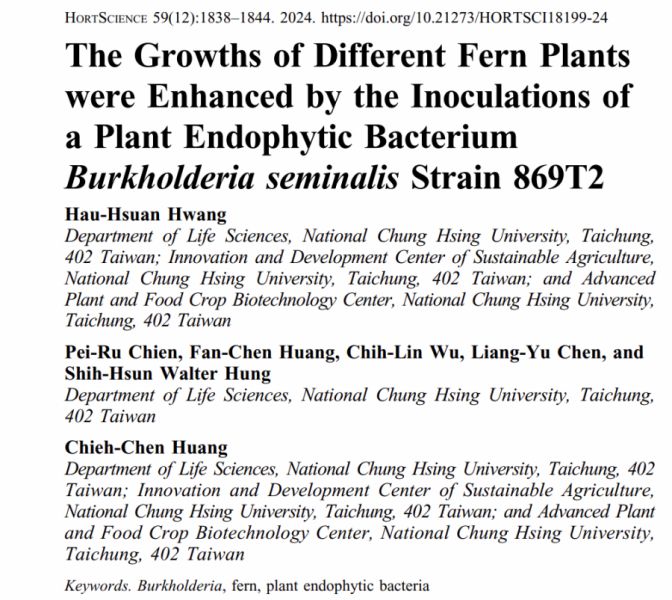循環農業:農業廢棄物再資源化【食品暨應用生物科技學系/蔣恩沛特聘教授】
| 論文篇名 | 英文:Expression of MTDH and IL-10 Is an Independent Predictor of Worse Prognosis in ER-Negative or PR-Negative Breast Cancer Patients 中文:MTDH 和 IL-10 的表達是 ER 陰性或 PR 陰性乳腺癌患者預後不良的獨立預測因子 |
| 期刊名稱 | JOURNAL OF CLINICAL MEDICINE |
| 發表年份,卷數,起迄頁數 | 2020, 9 (10), 3153 |
| 作者 | Chu, Pei-Yi ; Wang, Shin-Mae; Chen, Po-Ming; Tang, Feng-Yao; Chiang, En-Pei Isabel(蔣恩沛)* |
| DOI | 10.3390/jcm9103153 |
| 中文摘要 | (1) 背景:腫瘤缺氧會導致轉移和某些免疫反應,並干擾正常的生物學功能。還會影響葡萄糖的攝入,下游調控氧化磷酸化,並抑制由缺氧誘導因子 1α (HIF-1α) 調節的脂肪酸去飽和。儘管已經發現腫瘤缺氧會促進腫瘤轉移,但是 HIF-1α 調控基因的作用及其應用尚未完全整合到臨床實踐中。(2) 方法:本研究使用基因表達譜交互式分析 (GEPIA) 藉由網絡界面的數據庫,確認 HIF-1α,間質素 (MTDH) 和白介素 (IL)-10 mRNA 表達之間的相關性,以及它們在乳腺癌預後中的表達模式;使用免疫組織化學對組織微陣列 (TMA) 的 MTDH 和 IL-10 蛋白表達進行染色。(3) 結果:HIF-1α、MTDH 及 IL-10 mRNA 表現高度相關性,並與不良預後密切相關。乳腺癌患者的 MTDH 和 IL-10 蛋白表達通常具有雌激素受體 (ER) 或孕激素受體 (PR) 陰性,晚期腫瘤的 IL-10 表達較高。對於單因素和多因素分析的 MTDH 和 IL-10 蛋白表達狀態,結果表明 ER 陰性或 PR 陰性乳腺癌患者 MTDH 和 IL-10 的蛋白表達預後較差。(4) 結論:本研究提出了對缺氧腫瘤的新見解,為乳腺癌治療提供了新陳代謝和免疫證據。 |
| 英文摘要 | (1) Background: Tumor hypoxia leads to metastasis and certain immune responses, and interferes with normal biological functions. It also affects glucose intake, down-regulates oxidative phosphorylation, and inhibits fatty-acid desaturation regulated by hypoxia-inducible factor 1α (HIF-1α). Although tumor hypoxia has been found to promote tumor metastasis, the roles of HIF-1α-regulated genes and their application are not completely integrated in clinical practice. (2) Methods: We examined the correlation between HIF-1α, metadherin (MTDH), and interleukin (IL)-10 mRNA expression, as well as their expression patterns in the prognosis of breast cancer using the Gene Expression Profiling Interactive Analysis (GEPIA) databases via a web interface; tissue microarrays (TMAs) were stained for MTDH and IL-10 protein expression using immunohistochemistry. (3) Results: HIF-1α, MTDH, and IL-10 mRNA expression are highly correlated and strongly associated with poor prognosis. MTDH and IL-10 protein expression of breast cancer patients usually harbored negative estrogen receptor (ER) or progesterone receptor (PR) status, and late-stage tumors have higher IL-10 expression. With regard to MTDH and IL-10 protein expression status for using univariate and multivariate analysis, the results showed that the protein expression of MTDH and IL-10 in ER-negative or PR-negative breast cancer patients have the worse prognosis. (4) Conclusions: we propose a new insight into hypoxia tumors in the metabolism and immune evidence for breast cancer therapy. |







